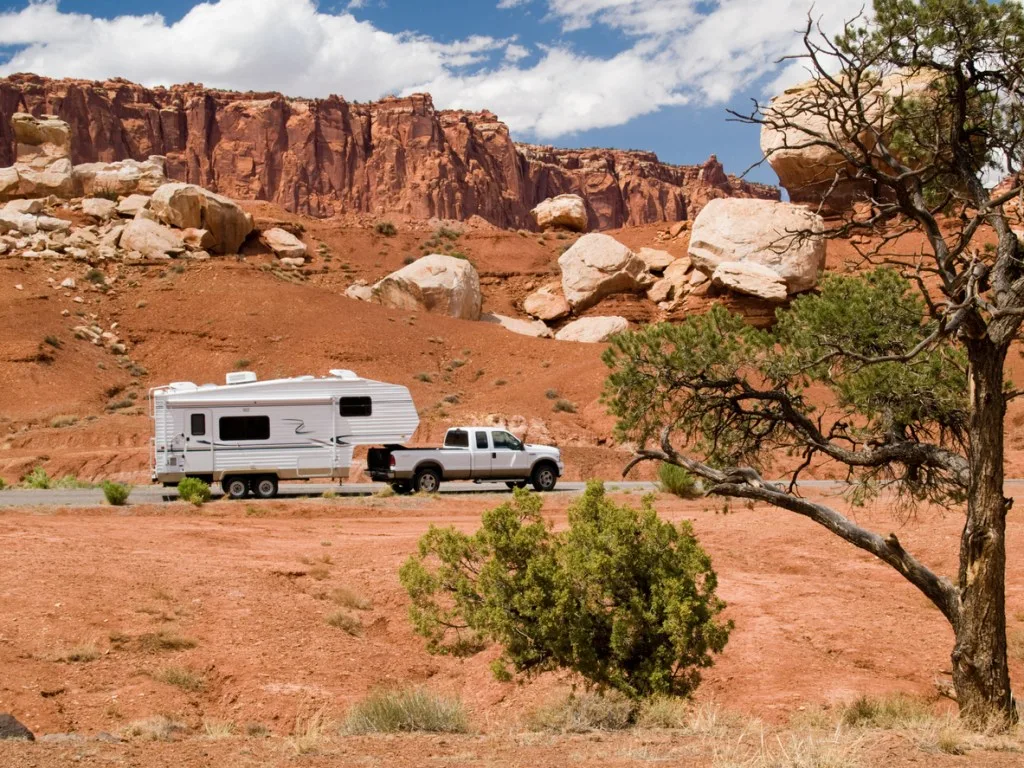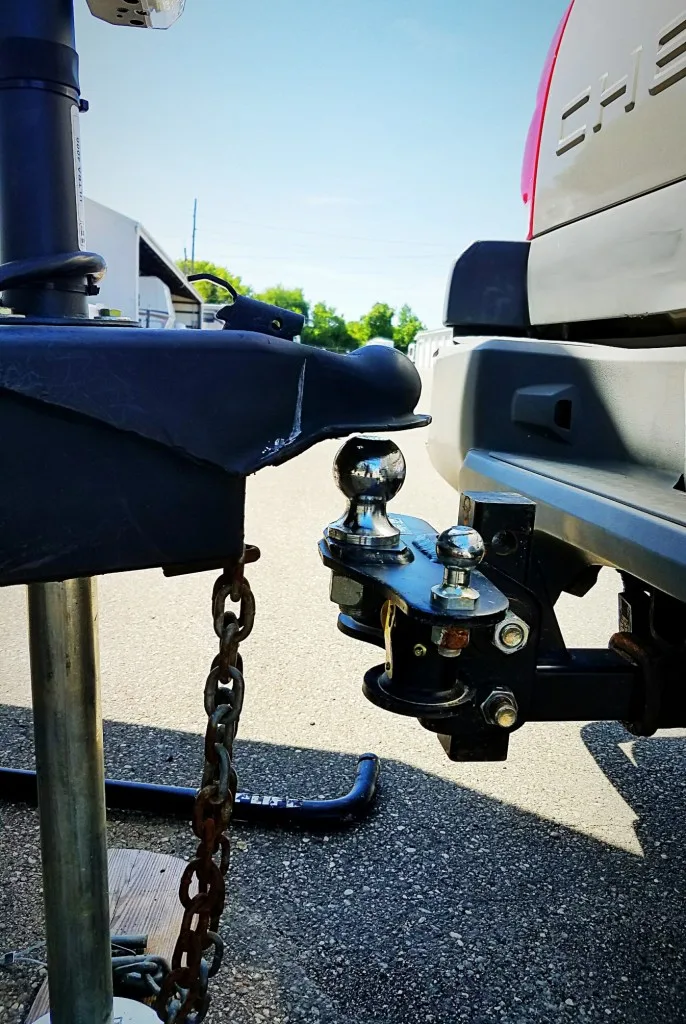It seems like everywhere you look these days, there’s an RV on the highway. RVs have become incredibly popular as more and more people are looking for opportunities to enjoy the great outdoors.
Towable RVs are one of the most popular and common RVs you’ll see in campgrounds and on the lots at RV dealerships.
However, there are a handful of reasons why we think you should avoid buying a towable RV. Let’s take a look!
What Is a Towable RV?
Towable RVs require a separate vehicle to tow them. This is typically a truck, but some SUVs, vans, and even cars can tow smaller campers.
These can be travel trailers, fifth wheels, or pop-up campers. They’re among the most versatile campers on the market since they come in various shapes, sizes, and floorplans. You can find a towable RV for just about any size family or vehicle.

Is a Drivable or Towable RV Better?
When it comes to the debate between driveable or towable, one isn’t better than the other. They’re two different types of RVs for different styles of traveling.
Drivable RVs offer easy access to the living space when you finish driving. In some instances, you don’t even need to get out of the vehicle. However, many driveable RV owners need to tow a separate vehicle behind them to make it easier to go sightseeing and run errands during their adventures.
Towable RVs can be a great option because you can drop the RV off at a campsite and then use the tow vehicle to go exploring and sightseeing at your destination. However, you’ll have to exit your RV to climb into your RV’s living space. Towable RVs also require a vehicle capable of safely hauling the trailer to and from the destination.
Again, one isn’t better than the other. No one-size-fits-all RV on the market will satisfy every type of RVing situation or traveling style. Find the one that works best for you and go with it.
5 Reasons to Avoid a Towable RV
Despite being the most common type of RV, there are a handful of reasons you should avoid a towable RV. Consider these reasons before signing on that new rig’s dotted line.
1. Having to Upgrade to a Truck or Larger Vehicle
Check your vehicle’s towing capabilities before you get too far along in the shopping and buying process. If you don’t already tow trailers regularly, there’s a good chance you’ll need to upgrade your vehicle. This may be a deal breaker for you if you’ve seen the price of trucks lately.
Check all the towing numbers for your vehicle, especially the payload and towing capacities. These are two of the most important numbers. As long as you follow them, there’s a good chance you’ll be able to tow your RV safely.
2. Unhooking and Hooking Up
Having a towable RV means hitching and unhitching your rig whenever you want to use it. This can be frustrating, especially when the weather doesn’t cooperate. It’s a necessary process that requires your complete attention to avoid making a costly mistake. If done incorrectly, you could get hurt or damage your RV.
The way towable RVs connect to the tow vehicle makes them susceptible to trailer sway while traveling down the highway. This will only be magnified if the tow vehicle is underrated for the trailer. In addition, you’ll need to worry more about how the weight is distributed in your rig to avoid a serious and dangerous situation while towing.

3. Experiencing Quickly Depreciating Value
Depreciation is the process of an item losing value over time. It’s why used vehicles are cheaper than new ones.
Towable RVs depreciate incredibly quickly. These rigs can be worth a fraction of their original value in only a few years. Unless you’re paying a large down payment on your new RV, there’s a good chance you’ll owe more than your RV is worth the second you drive it off the dealership lot.
While no RVs are good financial investments, towable RVs are some of the worst for retaining their value. Unless you’re prepared to take the financial hit to invest in making memories with your loved ones, you might want to reconsider purchasing that towable RV.
4. Facing Lackluster Safety and Quality Assurance
With the massive boom in the RV industry in recent years, many in the RV community have noticed that safety and quality assurance could be much better. Many manufacturers are facing worker and supply shortages. As a result, the overall quality of the final product is less than what it has been in the past.
Most of the trailers on the highways are mass-produced on a factory assembly line. Workers must assemble them as quickly as possible.
As a result, workers rush through their jobs and take shortcuts as needed. In addition, worker shortages are throwing inexperienced workers into essential roles for which they may not have the right experience or knowledge.
5. Stressing Your Tow Vehicle
Even if you have a capable towing vehicle, towing can be hard on it. You’ll likely notice an increase in wear and tear on your suspension and tires the more you tow. In addition, you’ll need to increase the frequency of oil changes to help protect your engine from potential issues.
Is Owning a Pull-Behind Camper Worth It?
While there are plenty of reasons not to own a towable RV, there are twice as many reasons why it’s worth it. An RV can make it easy for you to spend time and make memories with your loved ones. You can haul your RV to some exciting places and stay in beautiful locations you would never have imagined possible.
So while a towable RV can be a pain and a source of frustration from time to time, it’s worth it.
We’ll Help You Find the Best Free Camping in the USA
You should give it a try!
As a matter of fact, these free campsites are yours to enjoy. Every time you pay federal taxes, you’re contributing to these lands.
Become a FREE CAMPING INSIDER and join the 100,000 campers who love to score the best site!
We’ll send you the 50 Best Free Campsites in the USA (one per state). Access the list by submitting your email below: